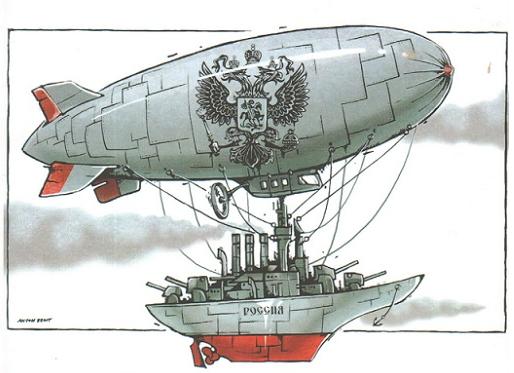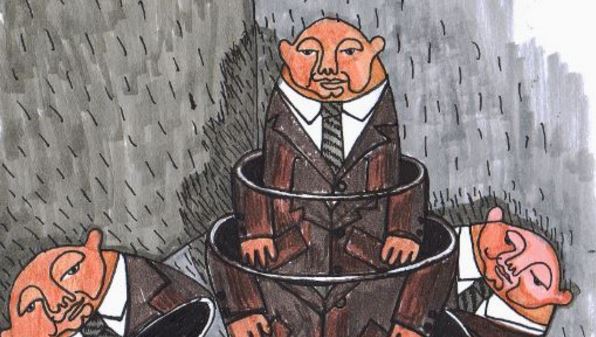
A major reason for this, Eidman suggests, is that “as the history of the Ukrainian conflict shows, any agreements that can be reached with Putin, he will violate at will and try to use any situation not for solving declared goals such as the struggle with ISIS or Islamism but rather for solving his own specific tactical expansionist tasks.” Moreover, he continues, there is no possibility that Putin will “genuinely enter into an international coalition” against ISIS and subordinate Russia’s actions to that group in the defense of civilization. That would “contradict all the practice of Russian policy and all its tasks which to a large extent do not differ from the tasks of the Islamists” – including aggression and “the destruction of the civilized world order.” Given “the total propaganda” at his command, Putin can probably get Russians to “support whatever he does,” including a possible ground operation in Syria. But how stable and long-lasting support would be is very much in doubt, given the experience with the war in Afghanistan. With regard to the possibility that the West might sacrifice Ukraine in the name of getting Putin to agree to support an anti-ISIS effort, Eidman says that he very much doubts that will happen. And he bases his conclusion on the nature of public opinion in Western countries, which is fundamentally different from what is called “public opinion” in Russia."The history of the Ukrainian conflict shows, any agreements that can be reached with Putin, he will violate at will and try to use any situation not for solving declared goals such as the struggle with ISIS or Islamism but rather for solving his own specific tactical expansionist tasks.”
“If you look at Western and European public opinion,” Eidman says, “it, in contrast to Russian pseudo-public opinion, is not so controlled or not so in the extreme case clearly dependent on state policy but to a much greater degree depends on certain fundamental things.” That generally precludes the sharp turns that authoritarian regimes often make. “As long as Putin and his regime are in power, as long as the annexation of Crimea and the de facto occupation of the Donbas continues, as long as all this continues, neither public opinion, nor political elites, nor governments or leaders of the West will return to the former policy of cooperation with Russia and to the former attitude toward Russia as a normal civilized country with which one needs to maintain close ties and good relations.” Those in Russia, Ukraine and the West who fear a new Yalta are being overly “pessimistic,” he suggests. There isn’t going to be any long-term close alliance between Russia and the West, and the West isn’t going to stop supporting Ukraine in order to fight ISIS. That kind of thing just isn’t going to happen, Eidman says. Thus, “there will not be a principal change of the situation because public opinion is not in a position to turn so quickly and suddenly fall in love with the Putin regime, and Western leaders depend on public opinion in their countries unlike the Russian rulers. Therefore,” Eidman says, he “does not think that any catastrophe or tragedy will occur.”"There isn’t going to be any long-term close alliance between Russia and the West, and the West isn’t going to stop supporting Ukraine in order to fight ISIS."
And for those leaders who would ignore this public opinion, he suggests that they should focus on the fact that Putin’s main goal in the Middle East is to create chaos, boost the price of oil, and thus improve his situation at home. Stability in the region won’t help him, and so why should anyone think he has any but a propagandist interest in that? Indeed, Eidman concludes, Putin almost certainly would like the current conflicts there to intensify and spread, possibly including Saudi Arabia, where if a civil war were to break out between Sunnis and Shiites, that would represent the achievement of “Vladimir Vladimirovich’s lifetime dream.”"Putin’s main goal in the Middle East is to create chaos, boost the price of oil, and thus improve his situation at home."





